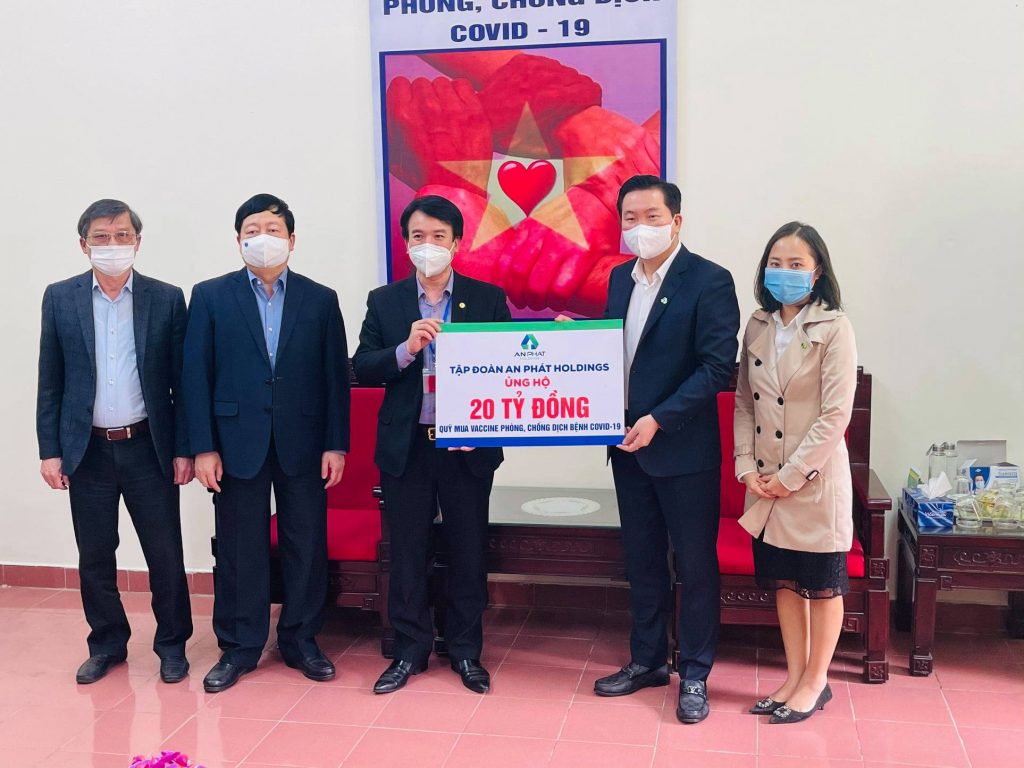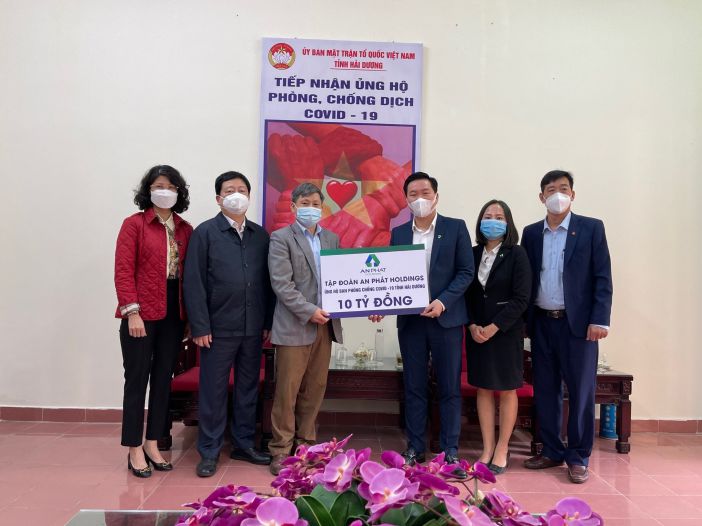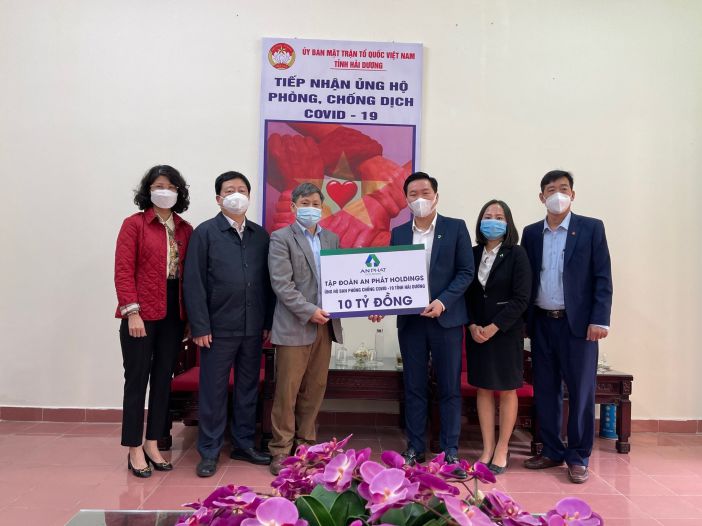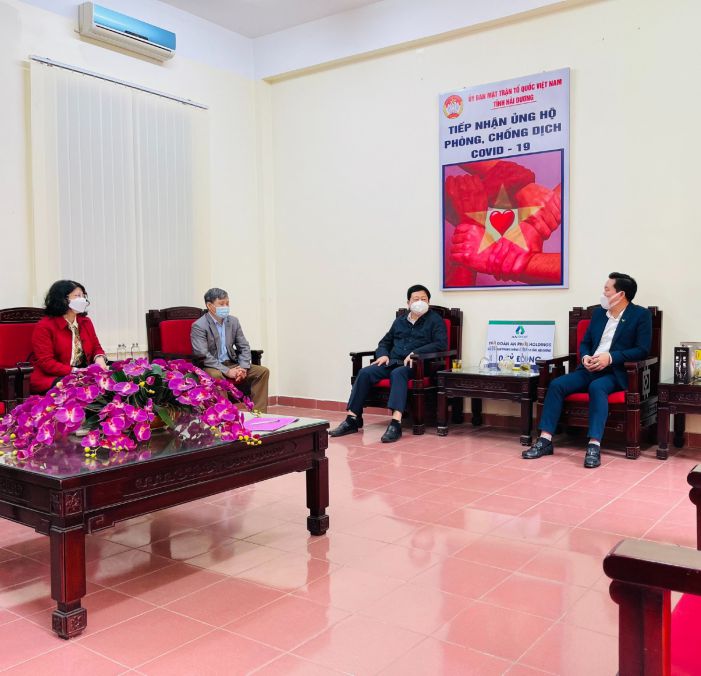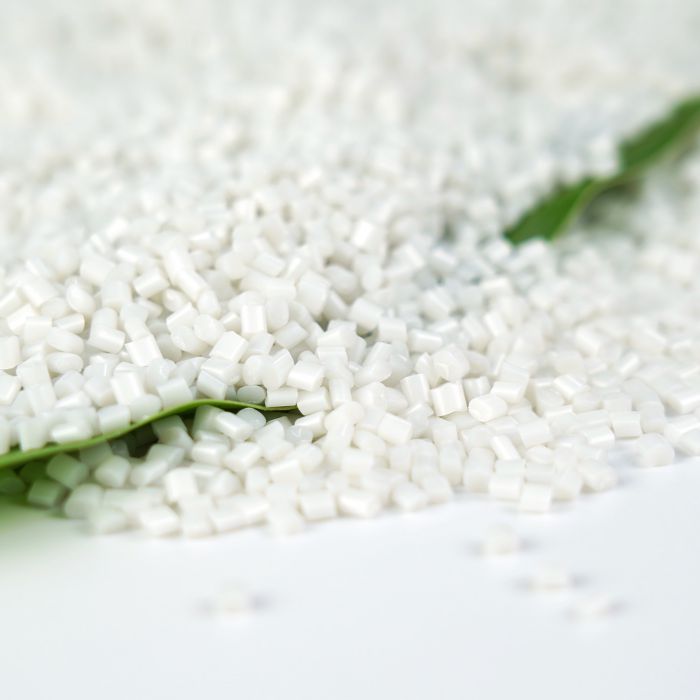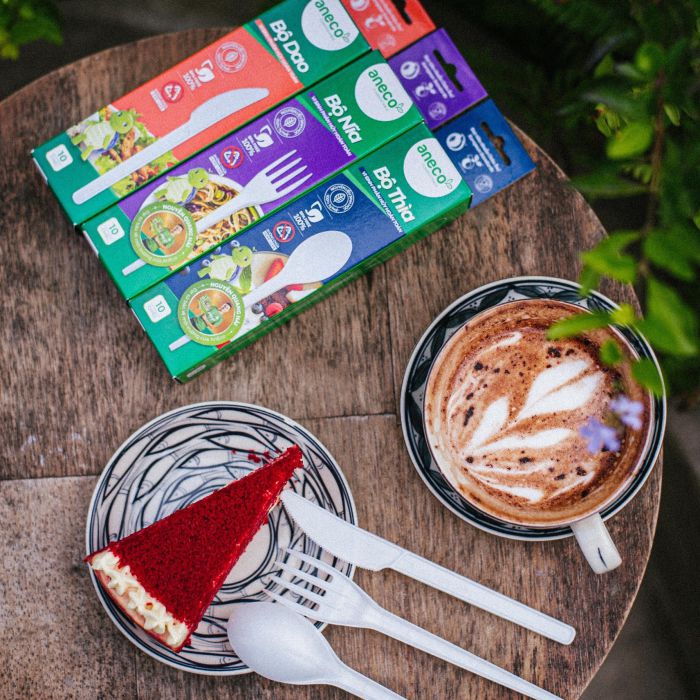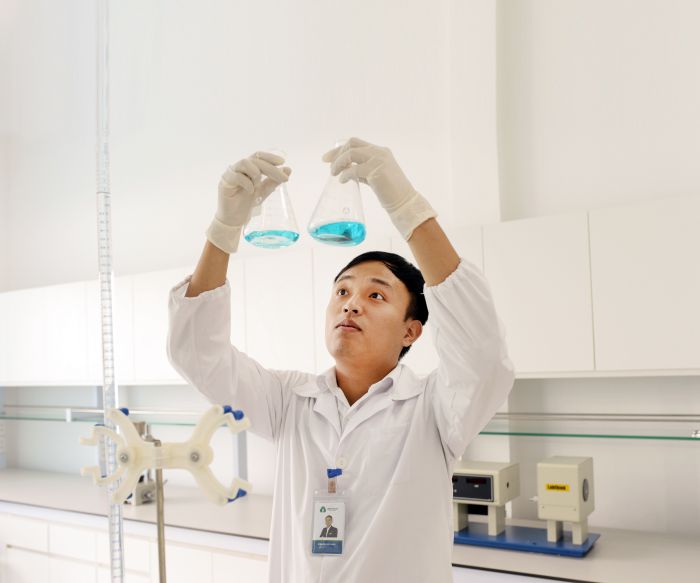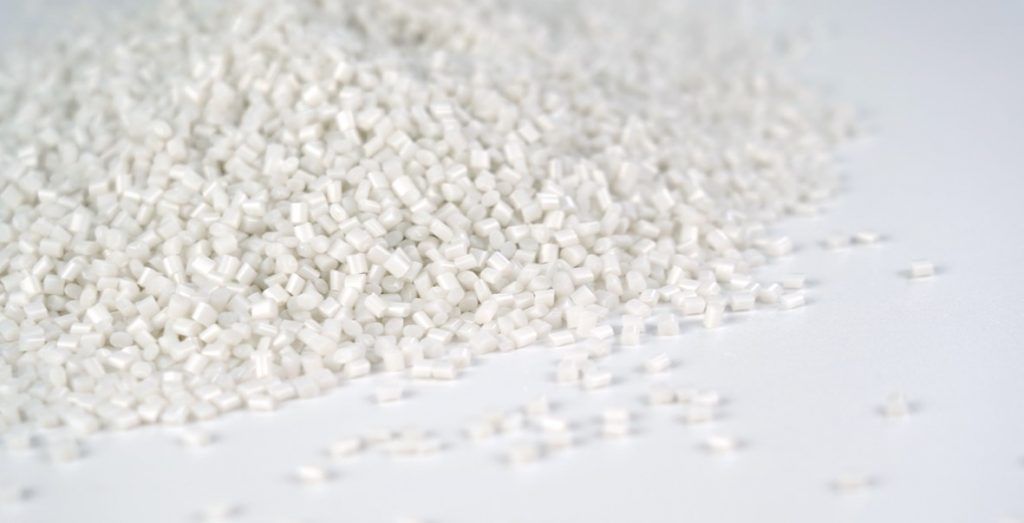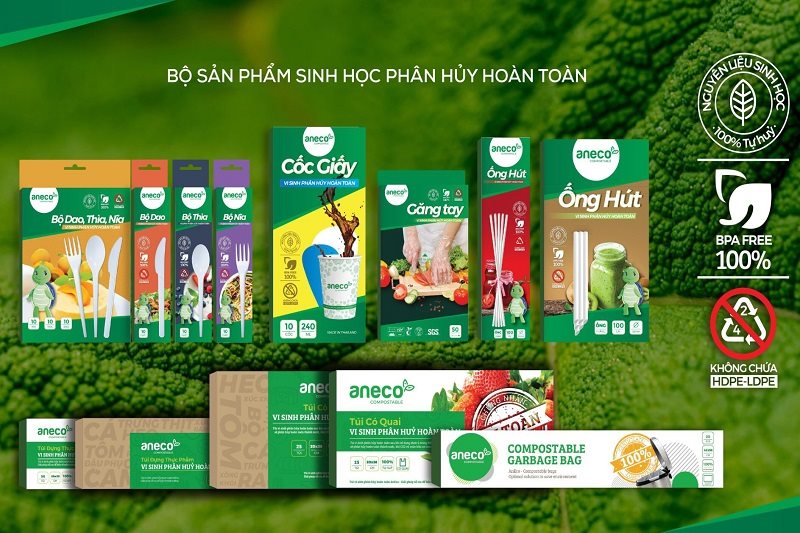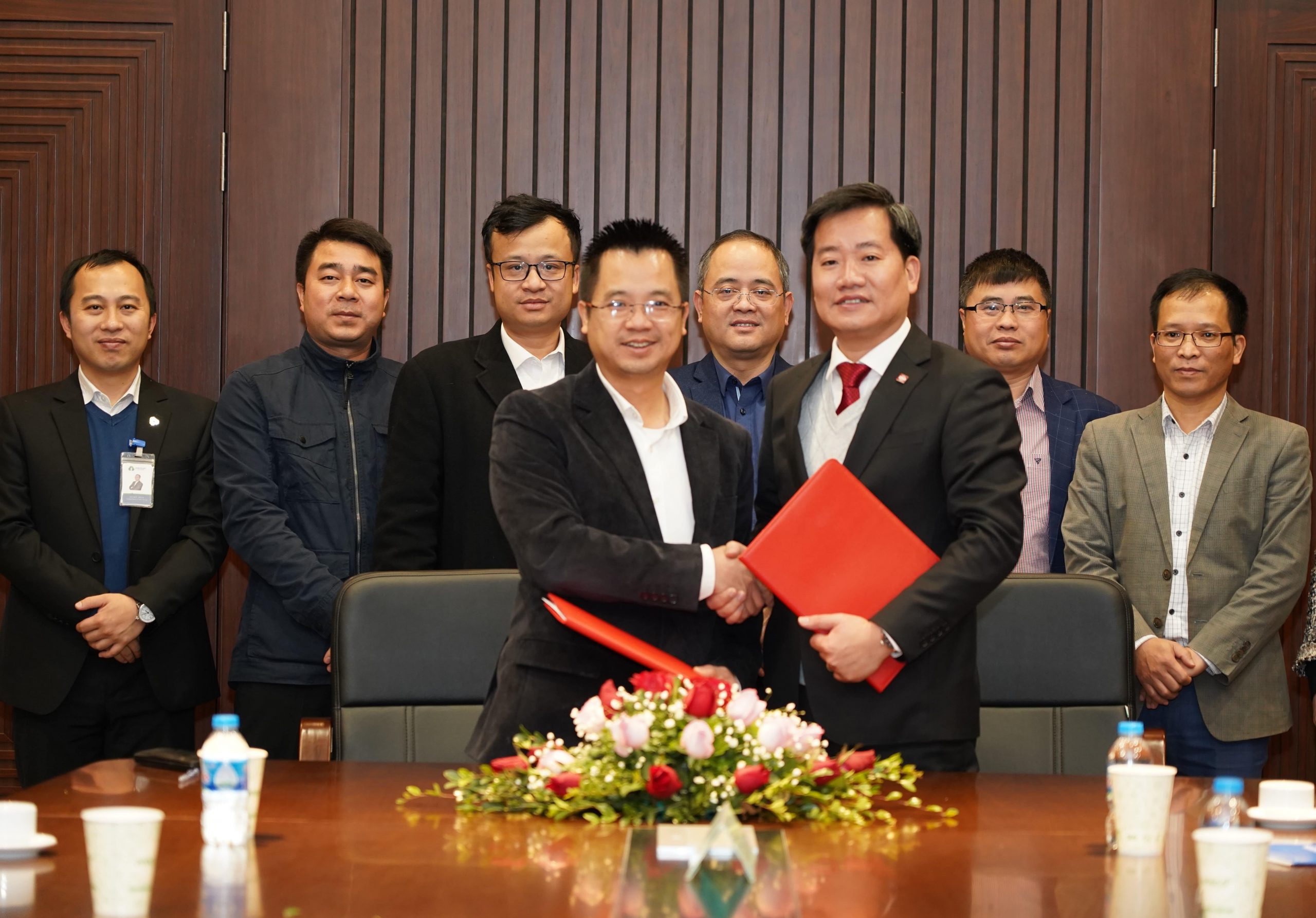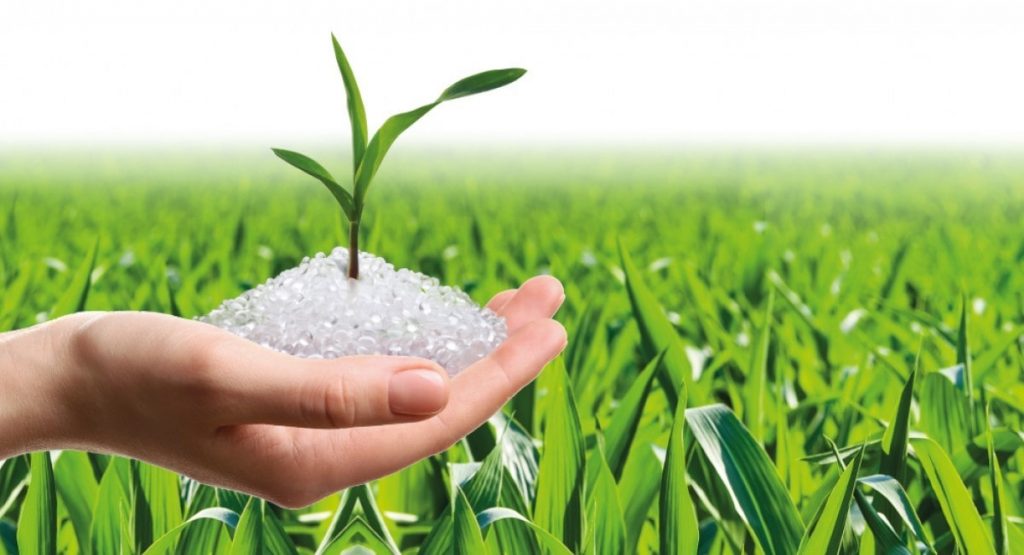Today (25 Feb 2021) at the headquarters of the Vietnam Fatherland Front Committee of Hai Duong, the representative of the Board of Directors of An Phat Holdings (APH) handed over VND 20 billion (~ $851,000) support to the provincial government to buy vaccines for residents of Hai Duong in the fight against Covid-19. Previously, in 2 times of support on February 1 and February 17, APH donated VND 11.35 billion (~$482,000), including cash, necessities, and equipment … to the Hai Duong provincial government.
Thus, only in February 2021, the total value of VND 31.35 billion (~ $1,3 mil) was donated by APH in Hai Duong’s Covid-19 fight. Together with 3 times of support with cash and necessities, An Phat Holdings in coordination with Hai Duong’s Youth Union, individuals, organizations, businesses… launched campaign “Relief and rescue agricultural products of Hai Duong”, rescued 1,000 tons of farm products.
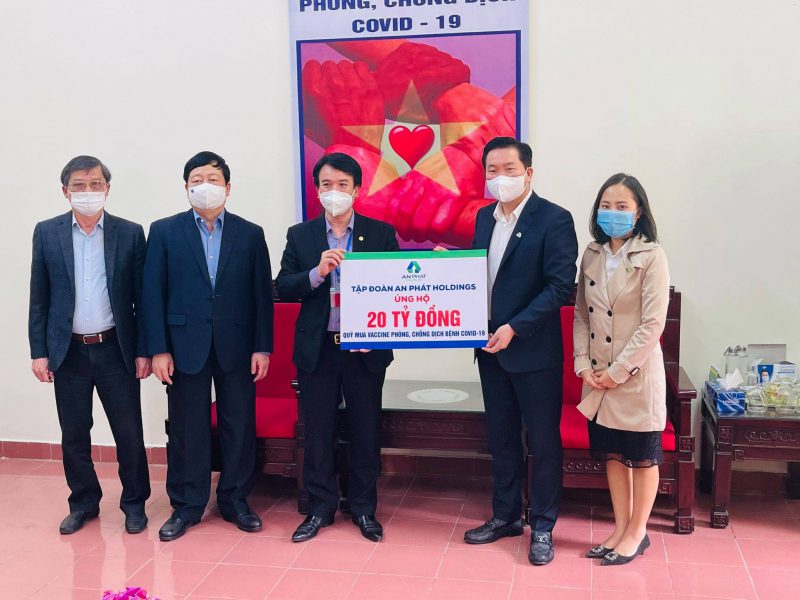
Present at the headquarters of the Vietnam Fatherland Front Committee of Hai Duong province, the representative of the Board of Directors of An Phat Holdings, Mr. Pham Van Tuan – Acting Deputy CEO of the Group directly handed over VND 20 billion (~$ 851,000) to Hai Duong’s government representative to support the implementation of buying Covid-19 vaccine for the resident of Hai Duong. Hai Duong Province’s Leaders directly received support from APH and expressed appreciation to the Board of Directors and An Phat Holdings’ employees.
This is also the biggest donation that An Phat Holdings has donated to the representatives of Hai Duong Province in Covid-19 pandemic prevention. Mr Pham Van Tuan – An Phat Holdings’ Acting Deputy CEO shared “In the situation of urgent need to have vaccines, helping people feel secure and helping the government to control the pandemic early is not only the responsibility of An Phat Holdings but also other organizations and individuals who want to contribute. All the support of An Phat Holdings from human or material resources comes from the spirit of unanimity, joining hands toward Hai Duong, hoping the province will quickly overcome the pandemic.”
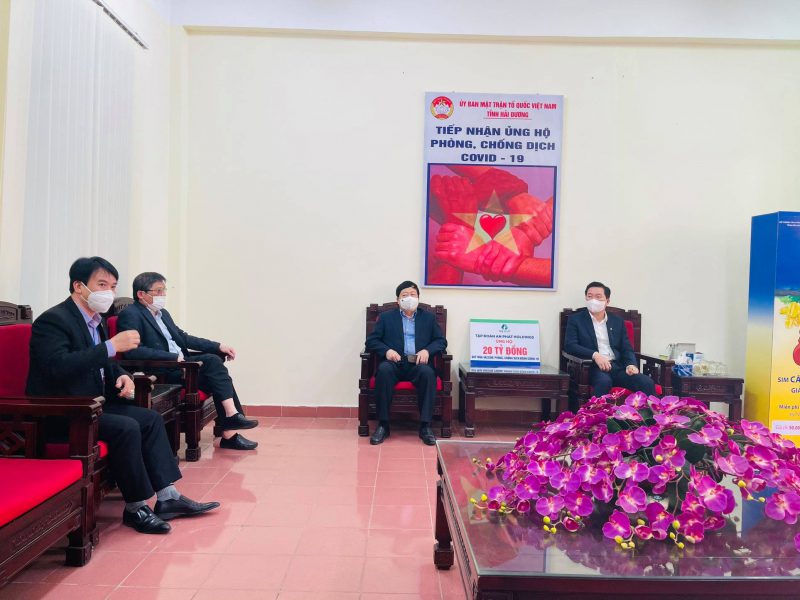
Hai Duong is the key production area of An Phat Holdings with 10 plants, many subsidiaries and is where 3,500 employees are living and working. Therefore, the Board of Directors and more than 5,000 employees of the whole Group are always ready to accompany and share all difficulties of Hai Duong in any period and at any time.
Along with the community support, An Phat Holdings always strictly complies with preventive measures at all factories, production facilities and offices, perform Covid-19 tests on all employees for ensuring “Safety for Employees, Safety for Production”.
Previously, in early 2020, since the outbreak of Covid-19 in Hanoi, An Phat Holdings also donated compostable products to 300 residents and soldiers on quarantine duty in Truc Bach area (Hanoi) and donated 5,000 medical masks and hand sanitizers to Vietnam Embassy in the United States.

